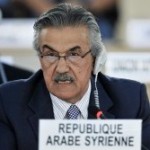The list of troubling accusations against the regime of Syrian President Bashar al-Asaad in the ongoing crackdown on protesters in the country continues to grow. The latest comes as Amnesty International released a report on Tuesday accusing the Syrian authorities of using hospitals as “instruments of repression in its efforts to crush opposition,” according to a press release from the human rights group.
The report says that wounded patients in at least four government-run hospitals have been mistreated and even tortured. In some cases that has included medical staff: One doctor told Amnesty that four doctors and more than 20 nurses had been seen abusing patients.
And the medical staff have faced their own intimidation from the regime. In August seven hospital workers were arrested at a government hospital. One told Amnesty that in his interrogation he was threatened with torture as they were accused of treating the wounded without reporting to the authorities.
“It is deeply alarming that the Syrian authorities seem to have given the security forces a free rein in hospitals, and that in many cases hospital staff appear to have taken part in torture and ill treatment of the very people they are supposed to care for,” said Amnesty International Middle East and North Africa researcher Cilina Nasser in the press release.
In the press release, one incident described a man, injured from a beating by security forces, taken to a national hospital. A witness said the injured man was surrounded by security personnel and nurses and after he returned to consciousness he was beaten. Another example involved security personnel making arrests of the wounded and removing them from the hospital, including a health worker saying one unconscious patient was taken off a ventilator.
“Given the scale and seriousness of the injuries being sustained by people across the country, it is disturbing to find that many consider it safer to risk not having major wounds treated rather than going to proper medical facilities,” said Nasser.
The situation is further complicated since the Syrian blood bank is also controlled by the government—so even private hospitals aren’t truly safe.
The Amnesty press release quoted a medic who had worked at a private hospital as saying, “We faced a dilemma every time we received a patient with a firearm injury and an urgent need of blood: If we send a request to the Central Blood Bank, the security would know about him and we would be putting him at risk or arrest and torture, and possibly death in custody.”
Amnesty International used the press release and report to call upon the Syrian government to instruct hospitals to treat all patients “without discrimination” and holding to account those preventing treatment for the wounded.
US Clarifies Ambassador Departure
Meanwhile, in a separate Syria-related matter, the United States this week clarified the reasons behind the removal of US Ambassador to Syria Robert Ford. The American diplomat had left Syria, with a statement from the US State Department explaining it was due to “credible threats against his personal safety.”
On Monday, spokesperson Victoria Nuland told reporters additional reasons for Ford’s return to the US from Syria while emphasizing he had not been withdrawn or recalled from the country.
In comments released by the State Department, Nuland was quoted as saying, “We’ve asked him to come home for consultations. People want to get his fingertip sense of what is going on. The environment that he works in is very tense, it’s very intense. We also want to give him a break. And it is our intention that he go back. But we’re also taking this opportunity to say to the Syrian Government that this kind of incitement has got to stop.”
Nuland refused to divulge intelligence information regarding the threats against him. She did mention examples of the state-run media “spreading lies about what he is up to. And the concern is that this could lead to further violence.”
However, when asked if they were backing down from the “credible threat” language, Nuland said, “I stand by the statement that we made this morning, and I’m not going to go further than it.”
She said the embassy remains fully staffed with normal operations in Amb. Ford’s absence.
In Wednesday’s press briefing, also published by the State Department, Nuland was quoted as saying that Ford hoped to return to Syria by Thanksgiving, with their expectation for him to return sometime prior to the holiday.
However, when asked if his return depended on actions by the Syrian government, Nuland said that “I think we will make our decisions about when he goes back, and when he goes back we expect the Syrian Government to meet their security obligations.”
(By Joshua Spurlock, www.themideastupdate.com, October 28, 2011)

